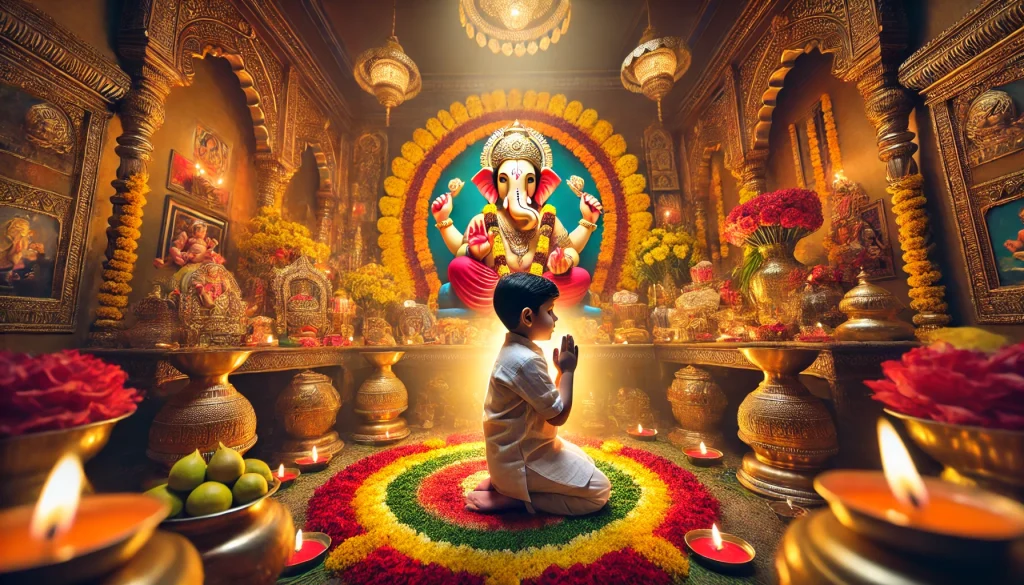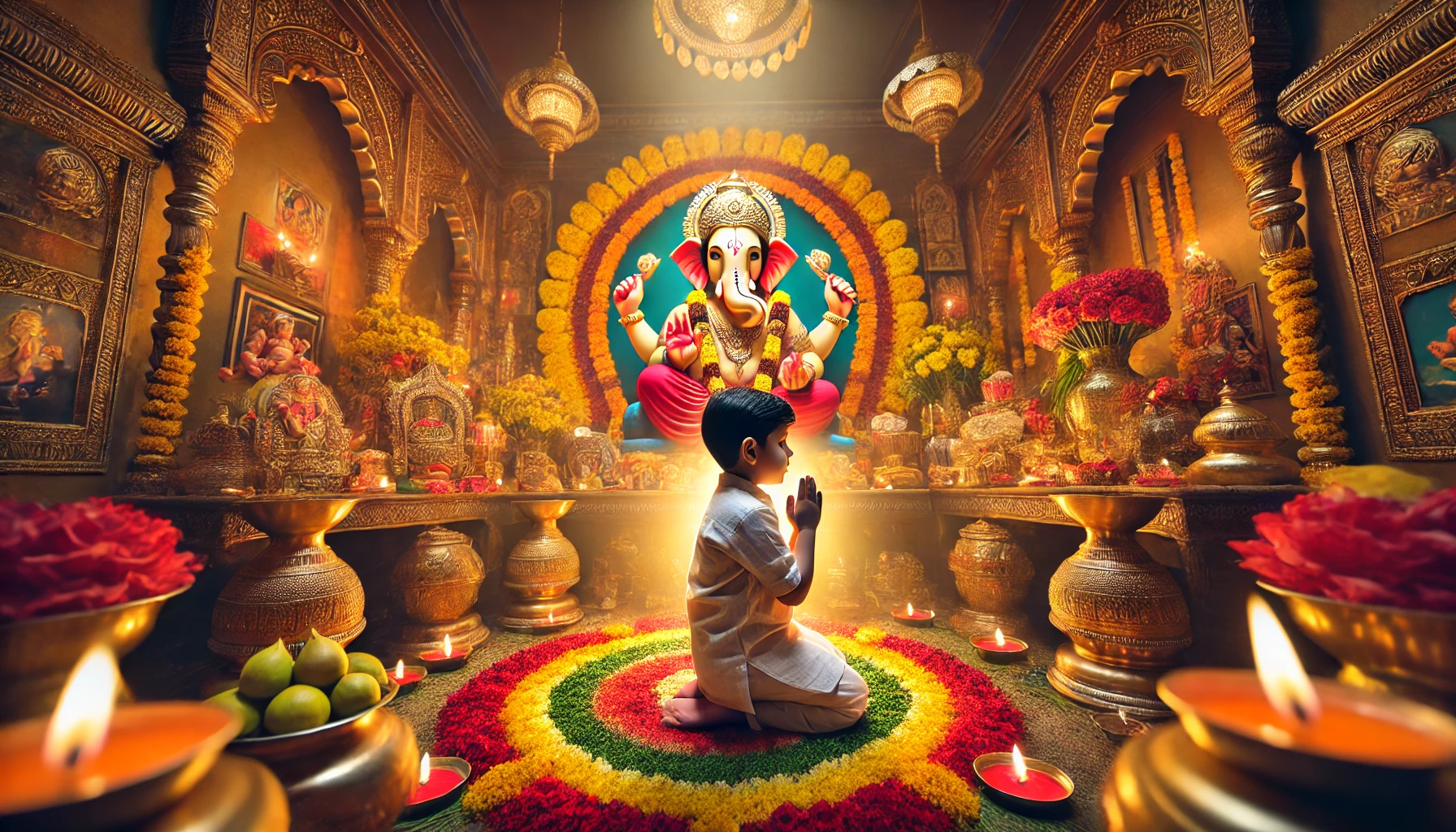
Pillayar Chathurthi, also known as Ganesh Chaturthi, is one of the most celebrated festivals dedicated to Lord Ganesha, the remover of obstacles and the god of beginnings. This sacred occasion fills homes and temples with devotion, music, and joy, as families come together to worship and offer prayers to Lord Ganesha. It’s not uncommon to see children actively participating in the prayers, lighting lamps, and folding their hands in reverence.
Creating an image of a boy praying on Pillayar Chathurthi symbolizes the innocence, purity, and devotion that is at the heart of this festival. It reflects a tradition that passes from generation to generation, teaching young ones the values of spirituality, faith, and the beauty of prayer.
Imagining the Scene: Boy Praying on Pillayar Chathurthi
Imagine the image of a young boy, hands folded in front of a beautifully decorated idol of Lord Ganesha. His eyes are closed in devotion, his face calm and serene as he prays. In the background, the rich aroma of incense wafts through the air, and vibrant decorations of marigold flowers adorn the setting. The warm glow of oil lamps softly illuminates the space, adding a divine and tranquil atmosphere to the scene.
The boy is surrounded by symbols of the festival—modak (sweet dumplings) placed as offerings to the god, garlands draped around the idol, and a plate of turmeric and kumkum powders, ready for the final aarti (ritual worship).
This image captures more than just a moment; it embodies the spirit of faith, devotion, and cultural heritage that Pillayar Chathurthi represents.
The Symbolism of a Child’s Prayer
A child praying during Pillayar Chathurthi holds deep symbolism. In Hindu tradition, children are seen as pure souls, and their prayers are believed to carry a special connection to the divine. The act of a child praying to Lord Ganesha symbolizes the passing down of devotion, faith, and cultural values from one generation to the next.
Ganesha, known for his wisdom and ability to remove obstacles, is often the first deity that young children are taught to pray to. His approachable and benevolent nature makes him a favorite among children, who feel connected to his elephant form and compassionate smile.
In this image of a boy praying, the devotion of the young is on full display, reminding us of the pure, heartfelt faith that many strive to maintain throughout their lives.
Key Elements to Highlight in the Image Creation
- The Idol of Lord Ganesha: A central figure in the image, the idol should be adorned with traditional decorations, including fresh flowers, colorful fabrics, and jewelry. Ganesha’s kind, benevolent face should exude warmth and serenity, inviting both the boy and the viewer into the sacred space.
- The Boy’s Posture: The boy’s posture is crucial to conveying the reverence of the moment. His hands should be clasped together in prayer, his head slightly bowed, and his eyes closed, reflecting his connection with the divine. Dressed in traditional attire, like a dhoti or kurta, his outfit should add authenticity to the scene.
- Traditional Offerings: Pillayar Chathurthi is rich in symbolism, and the image should include the offerings traditionally made to Lord Ganesha. Modaks, fruits, coconuts, and sweets can be placed on a decorative plate at the base of the idol. This highlights the festivity and the ritual importance of the day.
- Lighting and Ambience: The gentle glow of oil lamps or diyas can set the tone for the image, giving it a spiritual and peaceful aura. The warm lighting should softly illuminate the boy and the idol, creating a halo-like effect that enhances the overall mood of devotion.
- Cultural Decor: The background and surrounding space can be adorned with traditional Indian decorations such as marigold flowers, rangoli designs on the floor, and drapes in vibrant colors. These elements add to the festive feel while framing the moment of prayer beautifully.
Inspiration Behind the Image
An image of a boy praying on Pillayar Chathurthi serves as a powerful reminder of the spiritual connection that begins in childhood and often carries forward into adulthood. Pillayar Chathurthi is more than just a festival—it’s a celebration of devotion, hope, and renewal. In this image, the boy represents the future, continuing the rituals and prayers that have been handed down through generations.
For many families, the act of teaching children how to pray during such festivals is a sacred tradition. It’s not just about the rituals, but about instilling values of humility, gratitude, and devotion, and fostering a personal relationship with the divine.
Conclusion: A Picture of Faith and Tradition
The image of a boy praying on Pillayar Chathurthi encapsulates the essence of the festival—a blend of faith, cultural heritage, and family traditions. It’s a moment that many families experience during the festival, where the young are guided in prayers and rituals that have been performed for centuries.

